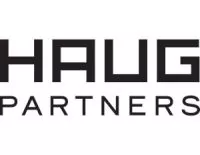On July 11, 2016, the U.S. Court of Appeals for the Federal Circuit—sitting en banc—issued a unanimous decision in The Medicines Company v. Hospira Inc., Case No. 14-1469, affirming that The Medicines Company's use of contract manufacturing services did not invalidate U.S. Patent Nos. 7,582,727 and 7,598,343 (the "patents-in-suit") under the on-sale bar. The patents-in-suit are listed in the FDA's Orange Book as covering The Medicines Company's drug product, Angiomax®, which is indicated for use as an anticoagulant during coronary angioplasty procedures.
In the en banc rehearing, the Court considered whether The Medicines Company's use of third-party services to manufacture the patented products triggered the on-sale bar of 35 U.S.C. § 102(b).1 The Court concluded that "to be 'on sale' under § 102(b), a product must be the subject of a commercial sale or offer for sale, and that a commercial sale is one that bears the general hallmarks of a sale pursuant to Section 2-106 of the Uniform Commercial Code." The Federal Circuit found that "no such invalidating commercial sale occurred in this case."
The Federal Circuit identified three main reasons for upholding the validity of the patents. First, "only manufacturing services were sold to the inventor—the invention was not." Second, "the inventor maintained control of the invention, as shown by the retention of title to the embodiments and the absence of any authorization to [the manufacturing service provider] to sell the product to others." And third, "'stockpiling,' standing alone, does not trigger the on-sale bar."
The Court agreed with The Medicines Company's arguments and credited numerous amicus filers whose arguments supported The Medicines Company's position, including the U.S. Department of Justice, Biotechnology Innovation Organization, American Intellectual Property Law Association, Intellectual Property Owners Association, Pharmaceutical Research and Manufacturers of America, Gilead Sciences, Inc., and others.
The amicus filers "uniformly argue[d] that applying the on-sale bar to the type of transaction that occurred here would only make the drug development process more costly, punish efficient use of resources, and deter future investments in innovation." The Federal Circuit agreed that there is "no room in the statute and no principled reason . . . to apply a different set of on-sale bar rules to inventors depending on whether their business model is to outsource manufacturing or to manufacture in-house." The Court saw "no reason to treat MedCo differently that [it] would a company with in-house manufacturing capabilities."
The Court rejected Hospira's arguments that The Medicines Company impermissibly obtained a commercial benefit through the manufacture and alleged stockpiling of the patented products. Instead, the Federal Circuit focused "those characteristics that make a sale 'commercial' in the most well-understood sense of that term and on what constitutes commercial marketing of a product, as distinct from merely obtaining some commercial benefit from a transaction . . . ."
The Federal Circuit remanded the appeal to the original panel for further proceedings concerning additional issues in the case relating to claim construction, infringement, and validity.
The Medicines Company's litigation team at FLH includes Ed Haug, Porter Fleming, Angus Chen, Robert Colletti, Jason Lief, David Zwally, Richard Kurz, Laura Krawczyk, Jason Kanter, Damon Lewis, Sam Desai, Erika Selli, and Sebastian Zonte.
To view the Court's opinion, please click here.
To view the July 11, 2016 Law360 article regarding this decision, please click here.
To view the July 12, 2016 Law360 article regarding this decision, please click here.
Footnote
1 This case concerns the pre-AIA application of the on-sale bar and the Federal Circuit did not address the post-AIA version of § 102(b).
The content of this article is intended to provide a general guide to the subject matter. Specialist advice should be sought about your specific circumstances.













